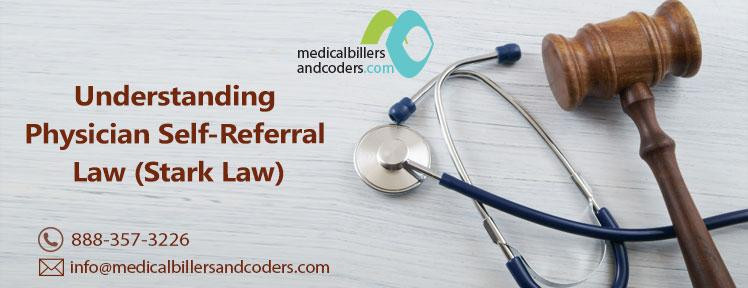Understanding Physician Self-Referral Law (Stark Law)

Physician Self-Referral Law (Stark Law) Basics
The Physician Self-Referral Law, commonly referred to as the Stark law, prohibits physicians from referring patients to receive Designated Health Services (DHS) payable by Medicare or Medicaid from entities with which the physician or an immediate family member has a financial relationship unless an exception applies. Financial relationships include both ownership/investment interests and compensation arrangements. The term Stark Law refers to former U.S. Representative Pete Stark of California, who originally introduced the physician ethics bill in the late 1980s that would later evolve into this law. At that time, healthcare services were provided mostly on a fee-for-service basis, meaning that healthcare providers (HCPs) were paid a predetermined amount for each type of service performed, rather than the current value-based system that focuses more on patient outcomes.
The fee-for-service healthcare delivery system encouraged physicians to focus on the number of procedures, patients, and claims filed versus how well the patients’ health goals were being met by these services. While the Stark Law originally only applied to physician referrals for clinical laboratory services, it has since been expanded to include a variety of health services and provider types. For example, if you invest in an imaging center, the Stark law requires the resulting financial relationship to fit within an exception or you may not refer patients to the facility and the entity may not bill for the referred imaging services. The following items or services are Designated Health Services (DHS):
- Clinical laboratory services.
- Physical therapy services.
- Occupational therapy services.
- Outpatient speech-language pathology services.
- Radiology and certain other imaging services.
- Radiation therapy services and supplies.
- Durable medical equipment and supplies.
- Parenteral and enteral nutrients, equipment, and supplies.
- Prosthetics, orthotics, and prosthetic devices and supplies.
- Home health services.
- Outpatient prescription drugs.
- Inpatient and outpatient hospital services.
The Stark Law Consists of Three Components:
- It prohibits healthcare providers from referring Medicare patients for certain health services to a business in which the physician has a financial or familial interest.
- The law also prohibits the billing of Medicare or other insurance providers for health services when an improper physician referral is made.
- Finally, the law establishes several exceptions to the two provisions above and grants the secretary of the Department of Health and Human Services the authority to create specific exceptions for referrals to entities or medical provider businesses that will not result in a conflict of interest.
To learn more about Understanding Physician Self-Referral Law (Stark Law), click here: https://bit.ly/45s0Xpx, Contact us at info@medicalbillersandcoders.com/ 888-357-3226.




